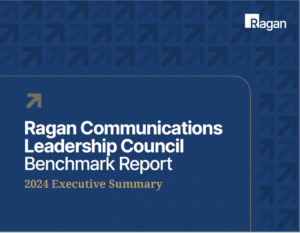Key learnings from Edelman’s Future of Corporate Communications Study
There’s a difference between earning a seat at the table and creating value.

Edelman’s 2023 Future of Corporate Communications Study, released last week, arrives on the heels of a 2021 edition that focused primarily on how the pandemic remade the comms landscape.
Here’s what stuck out.
The distinction between earning a seat at the table and creating value
The report acknowledges that communicators are increasingly counseling and advising on enterprise strategy, but also suggests this may sometimes create undesirable expectations.
- Over half (52%) of respondents believe the comms function is regarded as value creators while 37% said the function is still earning a seat at the table and just 10% said the function is responsive or reactive.
- Most (64%) of comms leaders reported being folded into decisions when a decision path has only been “tentatively identified,” while 9% are folded in after a decision is reached.
- Nearly 80% of leaders said their role is more demanding than it was 12 months ago.
- CCOs said that nearly one-fifth (18%) of their time is spent counseling the CEO on non-comms activities.
These statistics, the last two especially, illuminate the downside of being a trusted advisor — having it all fall on your shoulders. You can offset some of this by educating other functional leaders on comms best practices through resources and documentation (think style guides, response templates, shared editorial calendars).
Documenting and building resource libraries across digital tools will help you keep things collaborative and will take the pressure off you and your team to be the sole enforcers of comms best practices, freeing you up to focus on shaping and informing strategy.
Quantify those expanding stakeholders (with a focus on employees)
The study also reports that 66% said “the advisory their CEO seeks extends well beyond communications to impact business decisions across the enterprise” like supply chain, product issues, employee issues and others. The number climbs to 79% for comms leaders who said they are considered full strategic advisors.
This emphasizes the need for communicators to better identify their expanding stakeholder sets.
“Who are your most important stakeholders, where are they getting their information, and what is influencing them?” the report reads. “It is critical for communications leaders and their teams to understand how key stakeholders are showing up and what motivates them, to anticipate and mitigate challenges as well as seize opportunities.”
Employees should come into focus during this exercise. Sixty percent of study respondents said that the single most important outcome or metric for their function to deliver over the next two years is employee engagement.
Focus on outcomes that inform actions
It’s no surprise that the study’s measurement recommendations focus on the idea of moving from solely measuring the function’s outputs to looking at outcomes that inform actions.
“We anticipate more work with data science teams to integrate communications data with business performance data, such as sales or recruitment, creating a direct link between the communications work and business outcomes,” Edelman DXI Managing Director of Global Corporate Practice Kari Butcher told Ragan.
This is a small taste of the insights available exclusively to members of the Communications Leadership Council. For more information on how to join and access additional resources, click here.









